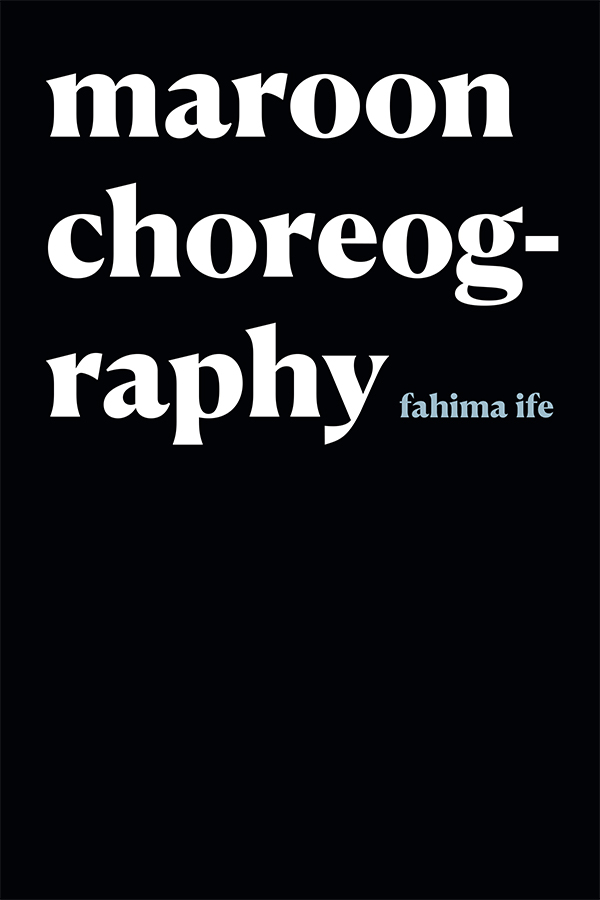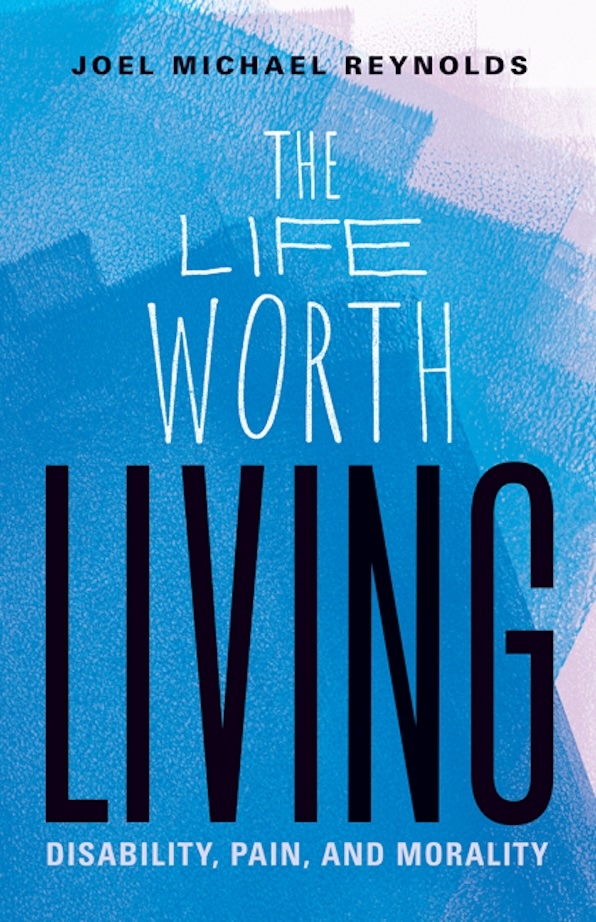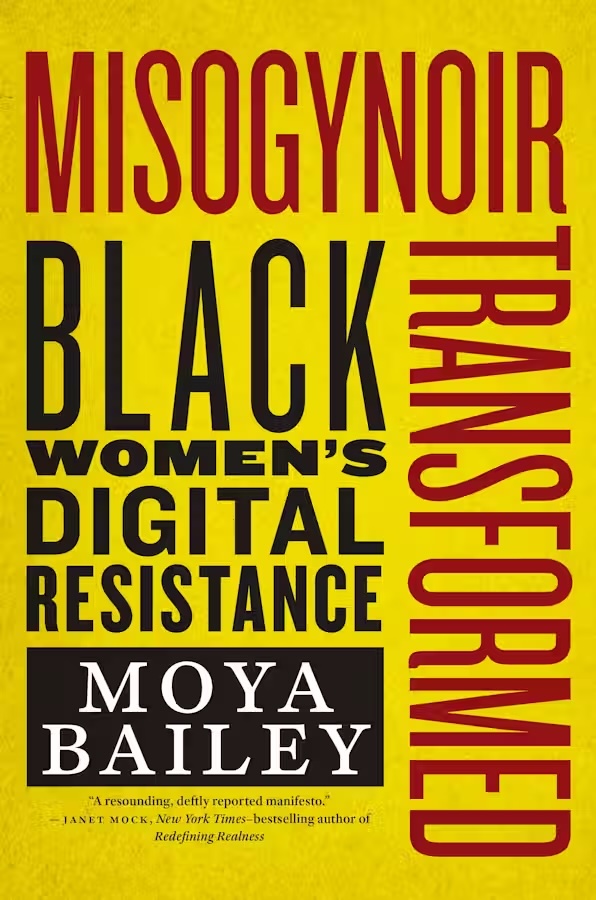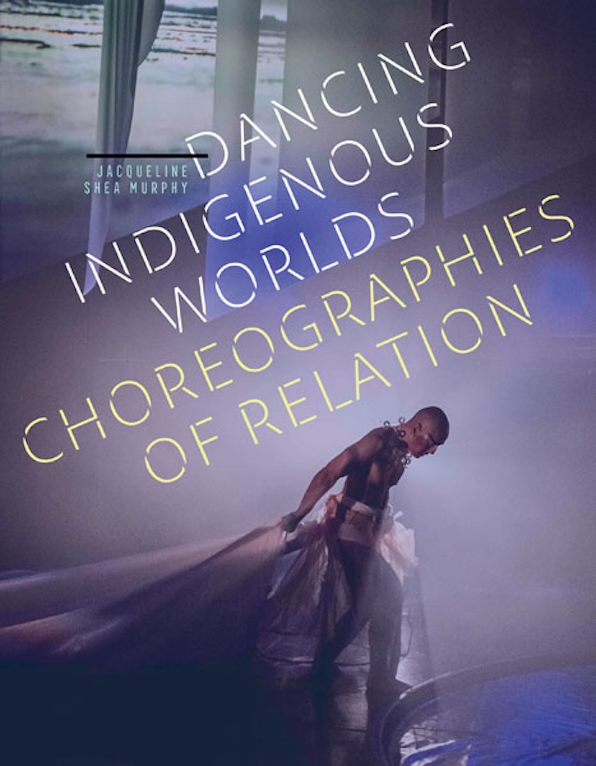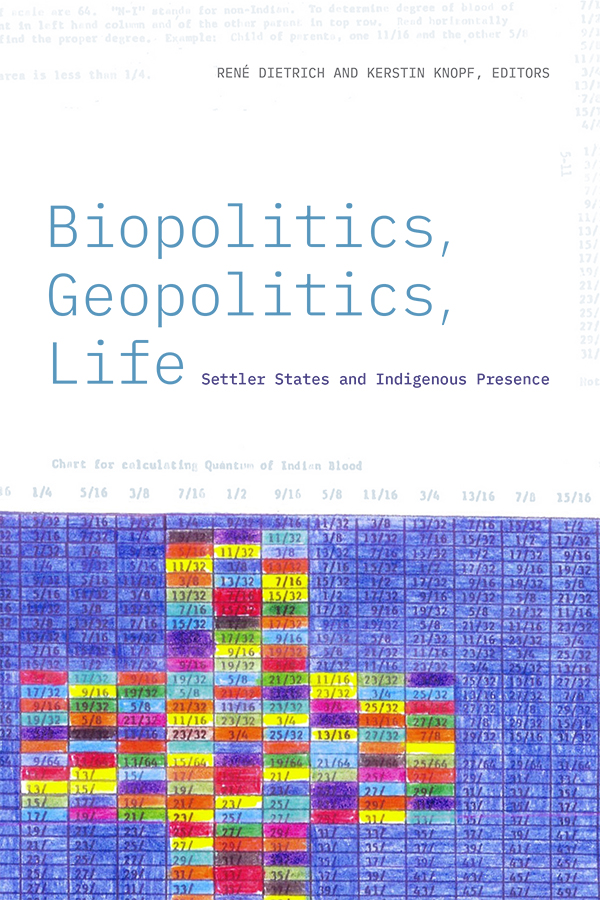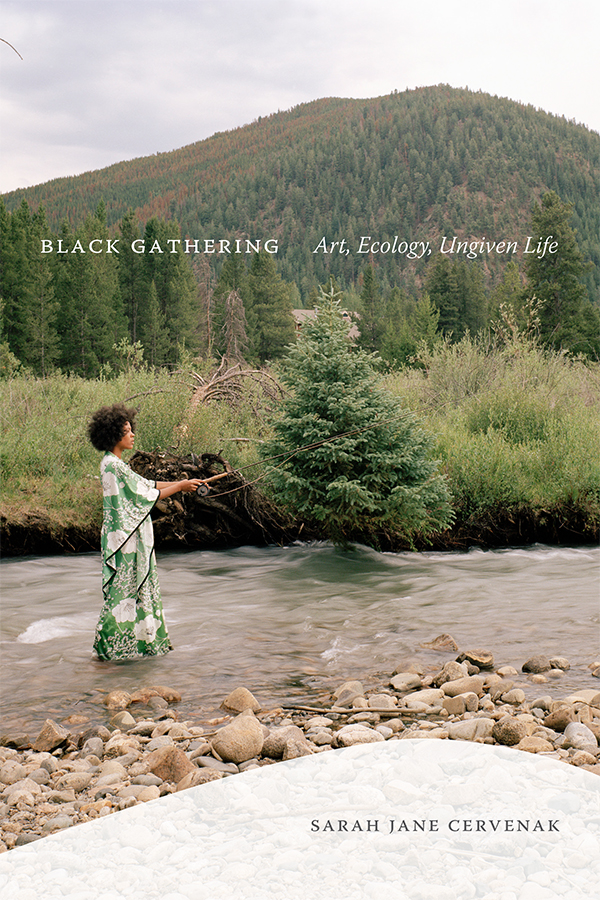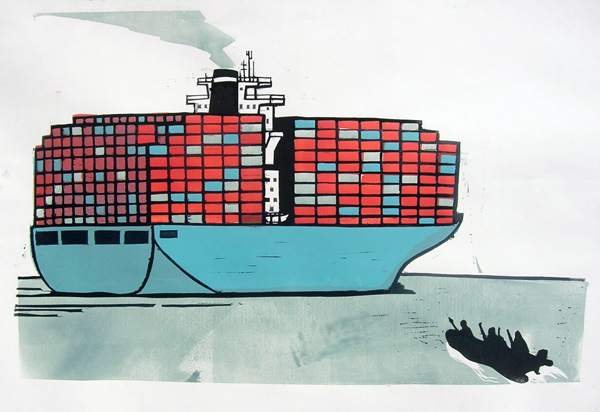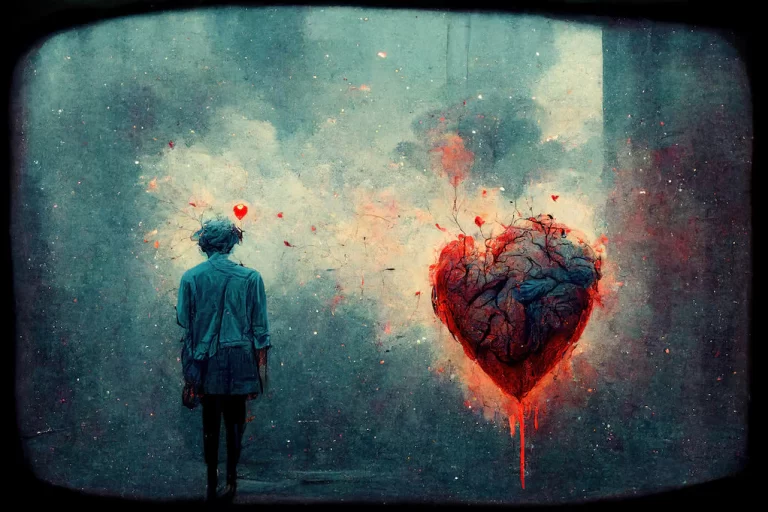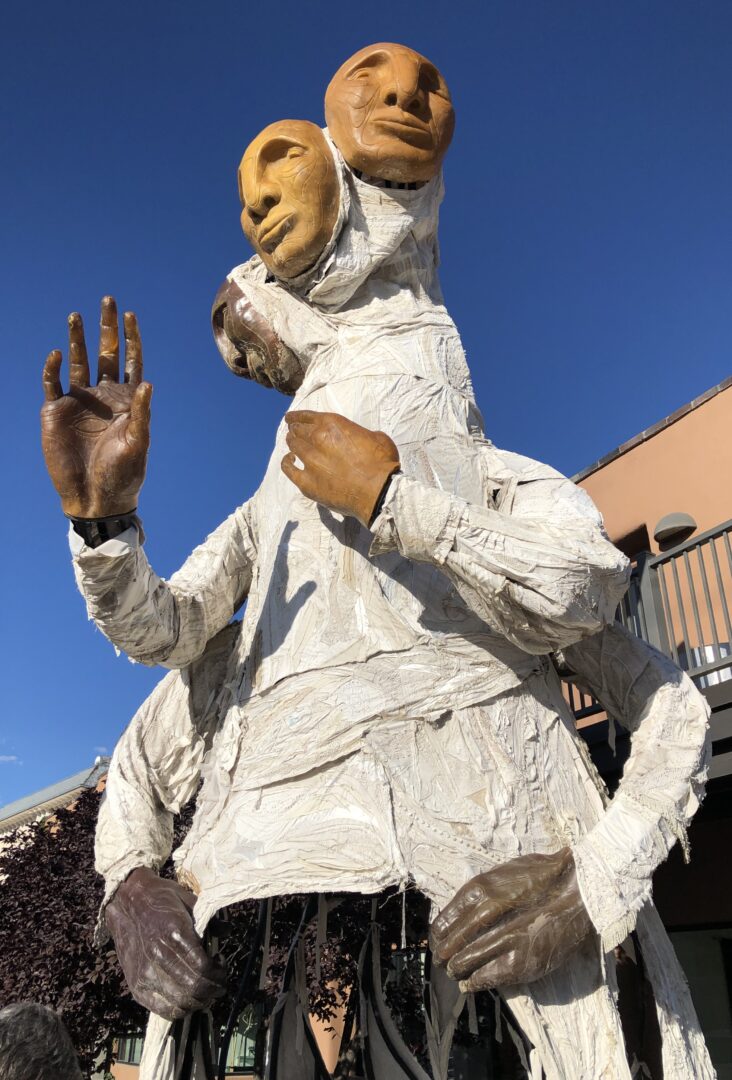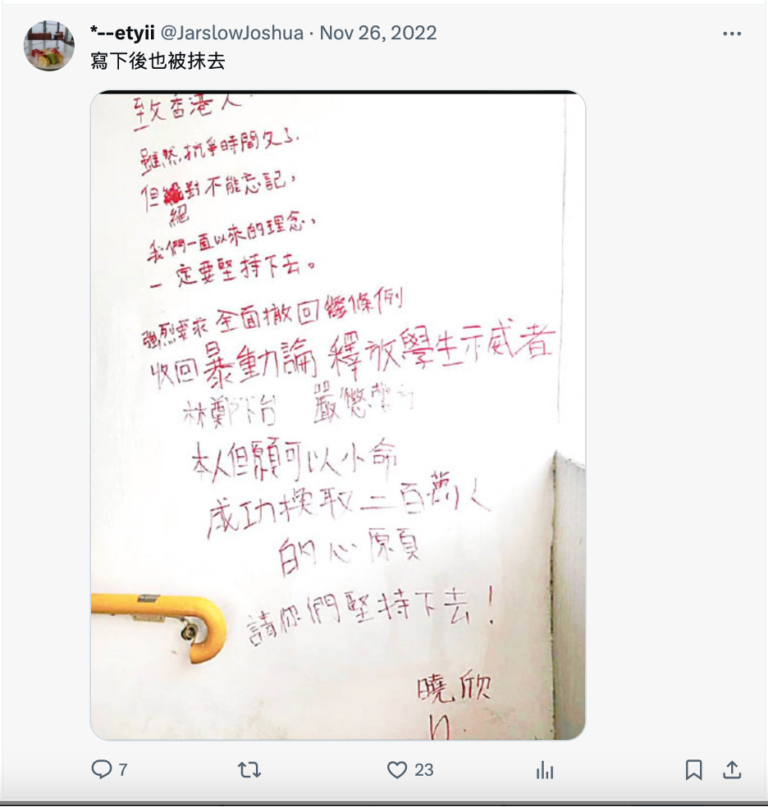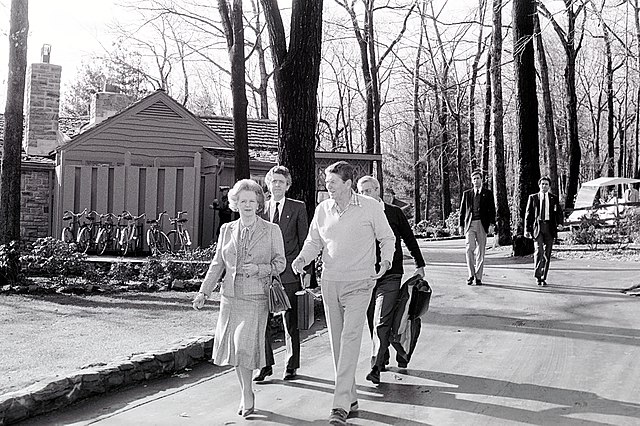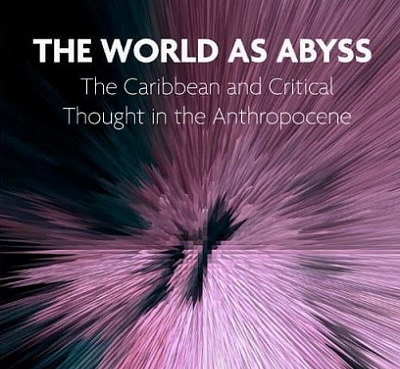In Maroon Choreography, fahima ife follows the policing of Black and Indigenous life across Western modernity in a series of meditations on the “discipling” of the English language in literature and pedagogy, asking us to consider how the afterlife or afterlives of slavery and the present reality of coloniality echoes in our more closely held assumptions about the relationship between language and power. Each of the book’s four sections meditates on a particular aspect of these contradictions, unpacking how certain intellectual projects and submerged knowledges cannot be understood in “disciplined English.” These stylistic choices function on both a creative and critical level, leaving us with a text that will challenge a wide range of audiences across the humanities and be instructive in our classrooms and workshops.
Issues
Review of The Life Worth Living: Disability, Pain, and Morality by Joel Michael Reynolds (University of Minnesota Press)
Joel Micheal Reynolds’s The Life Worth Living: Disability, Pain, and Morality unpacks the exclusion and demonization of disability within Western philosophy and bioethics. Through the lens of morality and phenomenology, Reynolds demonstrates a fundamental misrepresentation of disability that conflates disabled life with pain, suffering, and death. Through a careful dismantling of this “ableist conflation,” Reynolds points his readers toward an anti-ableist future that reconsiders disability, pain, and systems of care as a whole.
Review of Misogynoir Transformed: Black Women’s Digital Resistance by Moya Bailey (New York University Press)
Misogynoir Transformed is a pioneering work by Moya Bailey that offers a groundbreaking analysis of misogynoir and the transformative strategies for social change in contemporary digital society. Through careful analysis of media representations, web series, and social media platforms, Bailey reveals how Black women and Black nonbinary, agender, and gender-variant folks encounter and resist damaging narratives. Bailey also introduces the conceptual framework of digital alchemy to conceptualize the praxis that Black women employ to transform harmful everyday media into valuable social justice media, which functions to reduce the negative effects of misogynoir and create their own safe and inclusive community. This transformative activity highlights the dual effects of visibility—it is empowering but also precarious. Bailey’s work is evidence of how digital platforms have the positive power to reduce misogynoir and reshape the discourse on gender diversity and social justice.
Review of Dancing Indigenous Worlds: Choreographies of Relation by Jacqueline Shea Murphy (University of Minnesota Press)
Jacqueline Shea Murphy’s Dancing Indigenous Worlds deals with her participation in festivals, performances, and conversations with Indigenous dance artists, whose practices enact, register, and experience relationality. Relationality is both an expression of Indigenous ways of being and knowing and an integral part of dance work, including all the activities produced around it. Each chapter of the book explores in depth an aspect of relationality based on the work of an artist and the descriptions of the experiences and sensations that each of these has awakened in the author, both in the author’s voice and that of her interlocutors.
Review of Biopolitics, Geopolitics, Life: Settler States and Indigenous Presence edited by René Dietrich and Kerstin Knopf (Duke University Press)
Questions of violence, governance, life, and land have long animated critique within settler colonial studies and Indigenous studies. Biopolitics, Geopolitics, Life interrogates these lines of inquiry by centering Indigenous politics and onto-epistemologies from a variety of disciplines and across a range of settler colonial contexts to address the enmeshments of bio- and geopolitical logics and practices.
Review of Black Gathering: Art, Ecology, Ungiven Life by Sarah Jane Cervenak (Duke University Press)
In Black Gathering: Art, Ecology, Ungiven Life, Sarah-Jane Cervenak engages with the ecoaesthetic, ecopoetic, and ecoliterary work of Black artists and writers who, through their engagement with the environment, imagine the earth and Black life outside the logics of governance, property and ownership. Guided by two primary concepts, Cervenak considers “Gathering” and “Ungiven” as crucial frameworks to think otherwise about Black sociality, togetherness, and gathering aesthetically. By attending to the creative and artistic practices of Toni Morrison, Nikki Wallschlaeger, Samiya Bashir, Gabrielle Ralambo-Rajerison, Gayl Jones, and Leonardo Drew, Cervenak underlines “gathering” as both an act of resistance to the enclosures of anti-blackness and an insistent practice of “deregulated togetherness.”
Infrastructures of Transiency: On Cruise Ships
Cultural Studies Association’s Environment, Space & Place Working Group Co-Chair Richard Simpson discusses the local, global, and transnational impact of cruise ships and the cruise ship industry with Constance Dijkstra, International Maritime Organization (IMO) policy manager for the advocacy group T & E, Karla Hart, co-founder of the Global Cruise Activist Network, and Luc Renaud, Associate Professor at the Department of Urban and Tourism Studies at the University of Quebec in Montreal. This podcast is accompanied by a scholarly commentary by Francesca Savoldi.
Editors’ Introduction
This issue of Lateral introduces new features and significant original scholarship, including the Feeding the Civic Imagination forum, the debut of Aporias, new additions to Years in Cultural Studies and Positions, three original articles, and several book reviews.
Cringe Theory
Cringe theory is a framework intended to make sense of cringe as a cultural and political phenomenon that has come to condition how disability is understood in the contemporary American public imagination. Informed by Silvan Tompkins’ approach to affect, cringe theory has two distinct modalities. First, it can be understood as a suprastructure of feeling, a reflex tethered to our affective anatomy, which regulates the relationships between and among our emotions. This modality of cringe theory operates internally, telling us when to cringe, and each of us has our own, even if they do often resemble one another. The second of cringe theory’s modalities comes into view as an analytic that traces cringe from the moment of its emergence through the ripple of its repercussions. As an analytic, cringe theory helps us to understand how cringing operates as a culturally conditioned response to the world and as evidence of our affective relations to normative power. By examining both the internal and analytic forms of cringe theory, I show that cringing is a deeply political experience, one that indexes affect as an internalized system of governance by which we come to feel with normativity. Disability is a perfect object for this kind of affective governance, given how often it is used to signify the porous boundary between the purely aesthetic and the resolutely political. By examining a series of recent, popular representations of disability that attempt to elicit cringing from the audience, I argue that we are increasingly encouraged to know disability through our felt or affective perceptions of it. Cringe theory reveals one route through which these affective perceptions are engendered, alongside the affective norms that condition how we are all feeling our way through life.
We Are Not (Yet) Nonbinary
I am addressing this paper to other white temporarily-able-bodied settler feminists interested in moving, not just toward a queer (queerer?) horizon, but toward a nonbinary liberatory futurity as a collective political aspiration (not an identitarian goal of self-actualization). In this paper, I consider how we might mobilize the nonbinary as a freedom practice, a practice building toward a future where we are all free. Imagining and creating a liberatory inclusive future necessarily requires dismantling the constrictions of reproductive futurity, constrictions built on binary analytics. This paper begins with an outline of how a sense of urgency, legal and medicalized frameworks, and anti-victimism have dominated post- Dobbs responses and reinvigorated an allegiance to retrograde, repressive reproductive futurity. This brief discussion of post-Dobbs responses sets the stage for an exploration of a more expansive, inclusive, collective futurity beyond the settler state, a freer futurity made possible by mobilizing a nonbinary intersectional critique anchored in queer/crip/Indigenous analytics.
Affective Aesthetics: Mapping Visual Cultural Memories in the 2022 Anti-Zero-COVID Policy Protest in China
This article examines the meaning‐making work of historical, cultural, and visual references in the 2022 anti-Zero-COVID policy protests in China. Characterized by homemade protest placards, the wave of 2022 grassroots protests were striking, typically citing well-known historical quotes, written in red paint, or the use of plain white paper. Using the frameworks of affect theory and analyses of visual culture, I draw attention to underexamined forms of Chinese cultural and visual traditions of protest, and address the following empirical questions: Which national visual cultural references are mobilized in this contemporary protest; how do people repurpose specific cultural idiosyncrasies to voice political dissent; and how do these references contribute to local political meaning‐making and community-making? Via a qualitative analysis of such signs, this study identifies three types of cultural resources permissible by the state that became co‐opted in the protests: 1) literature from anti-imperial times, 2) motivational slogans and symbols from the cultural revolution, and 3) the contemporary technique of censorship. These references are appropriated for the potential afforded by their recognizability, their affective function to articulate the political cause, and their ability to bypass censorship and generate communities across national and regional boundaries. Examining the A4 Revolution as a paradigmatic case, I argue visual historical citation holds significant aesthetic, affective, and political value, particularly in its capacity to mobilize the masses within undemocratic environments. The affective visuals used in the protests can be read as a performative, strategic, and psychosocial device of “critical inheritance from the bottom up,” one that invites citizens to re-access cultural memory and critique the oppressive present.
1980—Neo-Marxism, Feminism, and Post-Colonialism at the Dawn of a New Decade of Cultural Studies
Tested against the global political struggles of feminist and anti-colonialist activists, cultural studies scholarship during the 1970s shifted from the subversion of humanist and empiricist dichotomies to the problematization of the limits and possibilities of postmodern critical knowledges themselves. Arguing for analyses that acknowledge the persistence of hierarchical systems and structures—such as neo-imperialism, and the persistent division of labor by sex—as social relations and subjectivities have become more individualized, fragmented, and unstable, we may recognize the year of 1980 as the symbolic moment cultural studies scholars would particularly problematize the categories, oppositions, and dichotomies on which conventional notions of race and sex rely. This article chronicles some of the key debates coming to a head over the course of the late 1970s which would prove fundamental to the development and continued importance of the cultural studies project over the course of the 1980s.
The World as Abyss
Andrew Culp and Cultural Studies Association’s Black and Race Studies Working Group Co-Host Shauna Rigaud discuss The World as Abyss: The Caribbean and Critical Thought in the Anthropocene (University of Westminster Press, 2023) with authors Jonathan Pugh and David Chandler. This podcast is accompanied by a scholarly commentary by Richard T. Stafford.
Introduction
This special section provides snapshots of the field of cultural studies, querying theoretical lapses, overlaps, and contentions between and within competing texts. In these short pieces, emerging scholars enter contemporary or historic academic debates to complicate the canon without a desire for resolution.
The Future Isn’t Now: Impossible Action in Political Scholarship
In a world of negation, it is exhilarating to imagine possibilities. Such is evident in the strain of critique that asserts there is something radically productive in opening up possibilities. This makes sense: critical theory seeks to illuminate something beyond endless torrents of death and destruction. But, this essay contends, the thrill of possibility-creation has created a new aporia: the affect gesture of possibility risks overshadowing the realization of radical possibilities. Various strains of scholarship presume that scholarly politics is a matter of perceiving and awakening possibilities. The impulse is most readily clear in utopianist scholarship like that of José Esteban Muñoz, but it’s also evident in work by Saidiya Hartman, Eve Kosofsky Sedgwick, and even Rita Felski. All these materials propose that cultural materials can coordinate possible worlds, and by extension, scholarship competency is to schematize them. But, I argue, the scholarship that follows these thinkers risks becoming trapped by possibility. It’s captivating to imagine new ways of being or living or knowing, but there exists neither the professional incentive nor the affective discipline to realize those possibilities. In our reverie at imagining the construction of a better world, our blueprints don’t necessarily reach the builder—and the indulgence of possibility risks sliding back into despair. This essay does not argue for dismissing the scholarship above, but rather suggests we haven’t read them well enough. Muñoz, Hartman, and Sedgwick are not drunk on hope; their openness to possibility comes from the mute agony of living in an unlivable world. Although a variety of material factors stand in the way of scholar-activism, this affective trap remains one of the most pressing—for if we do not recognize the feelings that structure political scholarship, we will only be playing a language game, projecting possibilities that could never come to fruition.
